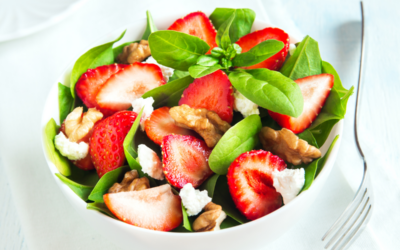Summary of key points
Many individuals encounter various bladder problems due to their unhealthy lifestyles or lifestyle changes. Persisting with such a lifestyle, even after experiencing issues, can lead to permanent damage, causing prolonged suffering. While a cup of coffee is a staple for many, aiding in staying alert and preventing sluggishness, excessive consumption can exacerbate other bodily issues. Maintaining bladder health is as crucial as caring for any other organ, and moderation is key to preventing harm unless one has specific allergies.
For those grappling with the discomfort of pain while urinating after consuming coffee or seeking insights to stay informed about potential problems, this blog is here to help. Throughout this article, we’ll delve into the components in coffee that may contribute to these issues, explore other potential problems one might face, and provide practical tips on how to mitigate risks or alleviate symptoms without bidding farewell to your beloved cup of coffee. By the end, you’ll be equipped with the knowledge to make informed choices about your coffee consumption, ensuring a balance between enjoyment and maintaining your overall well-being.
What does coffee contain that can cause pain when peeing after coffee
Coffee encompasses a variety of ingredients that contribute to its complex composition. Among the primary constituents are caffeine, protein, tannin, carbohydrates, and oils. Notably, caffeine comprises about 2-3% of coffee and is recognized as a potential irritant for the bladder, shedding light on why some individuals may experience pain when urinating after consuming coffee
What is caffeine?
Caffeine is found in 60 plants like coffee beans, cocoa beans, kola nuts, and tea leaves, making it the world’s most popular drug. Discovered in coffee in 1820, this bitter substance affects the brain and nervous system. Drinking three or more cups of coffee can cause “jitters” and bring side effects like trouble sleeping, headaches, irritability, nervousness, heartburn, indigestion, and more bathroom trips. It’s essential to be aware of these effects if you enjoy coffee regularly. Drinking it in moderation might help avoid these issues and let you savor your coffee without unwanted consequences.
How does caffeine affect your bladder?
Caffeine works as a diuretic, making you pee more often. If you have too much, it can make you feel like you need to go, affecting the muscles in your bladder. This irritation might lead to your bladder squeezing involuntarily, causing urge incontinence.
If you’re dealing with urinary incontinence, be careful with caffeine. Many studies show a link between how much caffeine you have and incontinence issues. Women who take in a lot of caffeine (400 mg or more) are 70% more likely to have urinary incontinence. For men, having about two cups of coffee every day makes them much more likely to have leaks compared to those who drink less or none at all. So, if you’re trying to manage incontinence, keeping an eye on your caffeine intake could make a big difference.
Effect of Caffeine on bladder?
Caffeine can give that alert feeling because it raises blood pressure. However, this heightened blood pressure can lead to an overactive bladder, causing issues like increased urination, bladder infections, and urinary incontinence. Other than pain peeing, the other effects of caffeine on the bladder’s smooth muscle are also something to consider.
The Diuretic Effect
Caffeine functions as a bladder diuretic, increasing the urge to urinate. The more caffeine consumed, the more intense this urge becomes. Caffeine enhances blood flow to the kidneys while reducing water and sodium absorption. This heightened urgency to pass liquid can lead to dehydration. Interestingly, attempting to quench your thirst by drinking more coffee or soda may paradoxically intensify your thirst, as caffeine’s diuretic effect continues to prompt the body to expel fluids, perpetuating the cycle of increased liquid consumption and heightened dehydration. It’s essential to be mindful of these effects and consider moderation for overall well-being.
Link to Urinary Tract Infections
Caffeine consumption contributes to urinary tract infections (UTIs) in the bladder. UTIs arise when insufficient hydration or improper bladder emptying. Caffeine’s dehydrating effect interferes with fluid retention, compelling the body to expel liquids before they can be adequately absorbed. This dehydration factor, exacerbated by caffeine, can potentially create an environment conducive to the development of urinary tract infections. Therefore, monitoring caffeine intake becomes crucial to maintaining proper hydration and minimizing the risk of UTIs.
Connection to Urinary Incontinence
Urinary incontinence is connected to caffeine consumption. If you’re coping with bladder weakness, cutting back on coffee, tea, and soda can be helpful. Often, people underestimate the amount of caffeine they consume daily. Being mindful of your caffeine intake is crucial, especially if you’re experiencing issues with bladder control. Making adjustments to reduce caffeine can contribute to managing and improving symptoms of urinary incontinence. It’s a small but significant step towards supporting your bladder health and overall well-being.
Considering these effects, it’s crucial to be mindful of your caffeine intake. By understanding the impact on your bladder and making adjustments to your habits, you can work towards maintaining better bladder health.
Multiple reasons when for pain peeing after coffee
Interstitial Cystitis
Painful peeing after coffee can be attributed to interstitial cystitis, a chronic condition causing periodic flares of symptoms. Both regular and decaffeinated coffee are labeled as potential bladder irritants by the Interstitial Cystitis Network. This painful bladder syndrome’s symptoms may worsen over time, and certain foods and drinks can trigger or alleviate flare-ups. Choosing herbal or low-acid decaf coffee is suggested as a gentler option to soothe your bladder without irritating it.
Urinary Tract Infections
Painful urination post-coffee might signal a urinary tract infection (UTI). UTIs bring about bladder irritation, urgency, and frequency. Elderly individuals and women are at a higher risk of UTIs. Drinking coffee during a UTI can intensify bladder pain. Opting for water over alcohol, citrus juices, and all caffeine sources is recommended during a UTI to alleviate symptoms and promote recovery with antibiotics.
Bladder Control
Bladder control problems, leading to incontinence, may be aggravated by coffee’s caffeine content. Acting as a diuretic, caffeine increases urine production, irritating an already sensitive bladder. Additionally, caffeine can induce spasms in the entire bladder, heightening discomfort. For those grappling with bladder-control problems, limiting coffee intake is advisable. Managing caffeine consumption can contribute to alleviating symptoms and improving overall bladder health, minimizing the risk of discomfort or irritation.
What to do to reduce pain peeing after coffee
Reducing the potential for coffee to irritate your bladder and cause pain during urination involves simple adjustments in consumption habits.
1. Lowering Acidity:
Combat coffee’s acidity by incorporating milk or creamer, minimizing its potential to irritate your bladder. Dilute your coffee with hot water and enjoy the same quality but in smaller portions throughout the day. Brewing coffee for a shorter time also decreases acidity and caffeine content. Ensure your serving size aligns with a standard six ounces, avoiding oversized portions. This approach reduces the workload on your bladder, lessening irritation.
2. Hydrate Before Coffee:
Prioritize hydrating with 6-8 ounces of water before indulging in coffee. This pre-hydration soothes the bladder lining, creating a buffer against caffeine and acidity. By diluting these elements upon bladder impact, irritation is minimized. An irritated bladder tends to stretch less, leading to more frequent bathroom trips. Preemptive hydration helps your bladder handle liquids more comfortably.
3. Maintain Proper Hydration:
Contrary to reducing water intake to minimize bathroom visits, stay well-hydrated. Concentrated urine resulting from reduced water intake can intensify irritation. Optimal hydration teaches your bladder to control urgency. Although excessive irritants can cause the bladder’s muscle fibers to lose elasticity, increasing water intake gently stretches these fibers, restoring normal fluid volume accommodation. Retrain your bladder with non-irritating fluids, with water being the ideal choice for a bladder-friendly routine.
Implementing these practices can transform your coffee-drinking experience, minimizing the likelihood of bladder irritation and pain during urination. By adopting these strategies, you not only savor your coffee in a bladder-friendly manner but also contribute to the overall health and comfort of your urinary system. Making informed choices about coffee consumption empowers you to enjoy this beloved beverage without compromising your bladder’s well-being.
Takeaway
In conclusion, recognizing the potential causes of pain during urination after coffee consumption allows individuals to make informed decisions for improved bladder health. Bladder issues linked to unhealthy lifestyles underscore the importance of moderation and awareness. Coffee, with its various elements, especially caffeine, can contribute to increased urination, bladder infections, and urinary incontinence. Practical adjustments in coffee consumption, such as lowering acidity and maintaining proper hydration, provide a pathway to minimize bladder irritation and discomfort, allowing individuals to savor their coffee without compromising their urinary well-being.
Take charge of your bladder health today by implementing these simple strategies to minimize pain during urination after coffee consumption. Adjust your coffee habits like lowering acidity through milk or creamer, diluting your coffee, and maintaining proper hydration with pre-hydration before your cup of joe. Mindful caffeine intake can alleviate bladder irritation, enhancing your overall well-being. Embrace these practical steps, and empower yourself to enjoy your coffee without compromising your urinary health.
For additional tips, tricks, and strategies to enhance your health and fitness journey, stay connected with WholeYum. Explore our collection of engaging and informative blogs that offer valuable insights. We are dedicated to making your wellness experience both enjoyable and enriching. Follow us for a wealth of resources that will support you on your path to a healthier and fitter lifestyle.
Frequently Asked Questions (FAQs)
1. Why does coffee cause pain during urination?
Coffee induces pain during urination due to its caffeine content, acting as a bladder irritant. Prolonged and excessive consumption heightens sensitivity, potentially causing discomfort and pain while urinating.
2. Why does coffee cause pain during urination?
To reduce the likelihood of pain after coffee, consider strategies like adding milk or diluting with water to lower acidity. Staying well-hydrated before consuming coffee creates a buffer against potential bladder irritation, promoting a more comfortable experience.
3. Can reducing caffeine intake help with bladder issues?
Moderating caffeine intake is pivotal for alleviating various bladder issues, including increased urgency to urinate, infections, and urinary incontinence. This approach contributes to overall bladder health and minimizes the risk of discomfort associated with excessive caffeine consumption.
4. What other effects does caffeine have on the bladder?
Caffeine, as a diuretic, heightens the urge to urinate and can raise blood pressure. These effects may lead to an overactive bladder, resulting in increased urination frequency and potential discomfort. Awareness of these impacts is crucial for those aiming to manage their bladder health.
5. Are there alternatives to regular coffee that are gentler on the bladder?
Explore gentler alternatives to regular coffee by opting for herbal coffees or low-acid decaf options. These choices are recommended for individuals sensitive to the effects of caffeine, providing a bladder-friendly option without compromising the enjoyment of a warm beverage.
6. How can I enjoy my coffee while maintaining bladder health?
Balancing coffee enjoyment with bladder health involves adopting practices like reducing acidity, hydrating before consumption, and moderating overall caffeine intake. These simple adjustments empower individuals to savor their coffee while prioritizing the comfort and well-being of their bladder.















